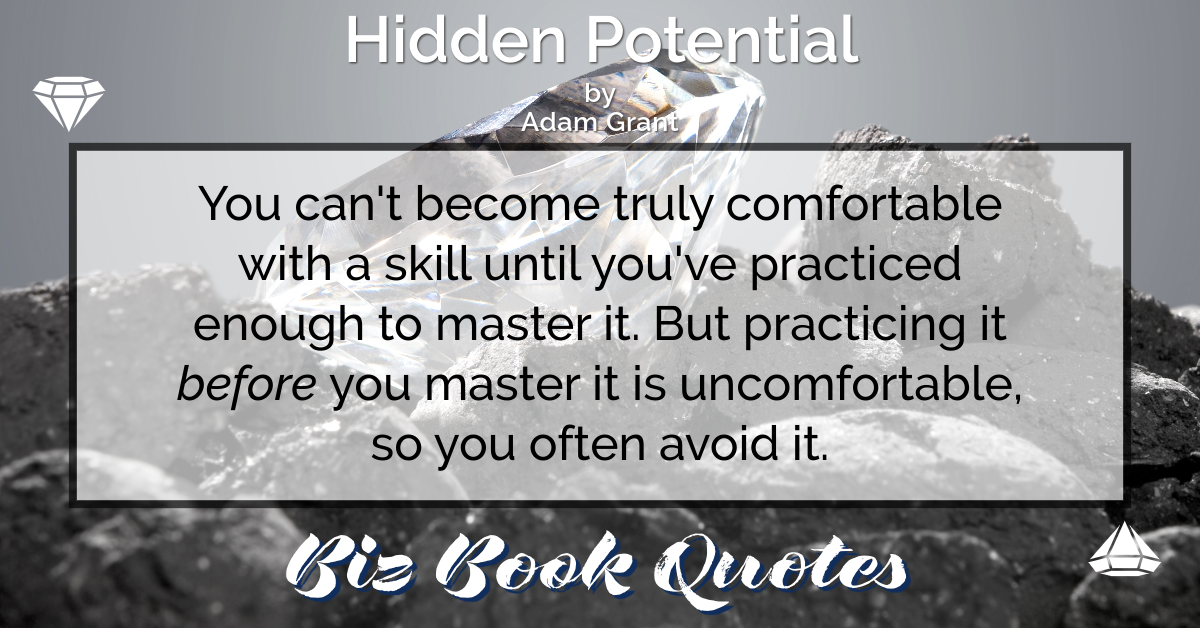 |
You can’t become truly comfortable with a skill until you’ve practiced enough to master it. But practicing it before you master it is uncomfortable, so you often avoid it.
|
033 |
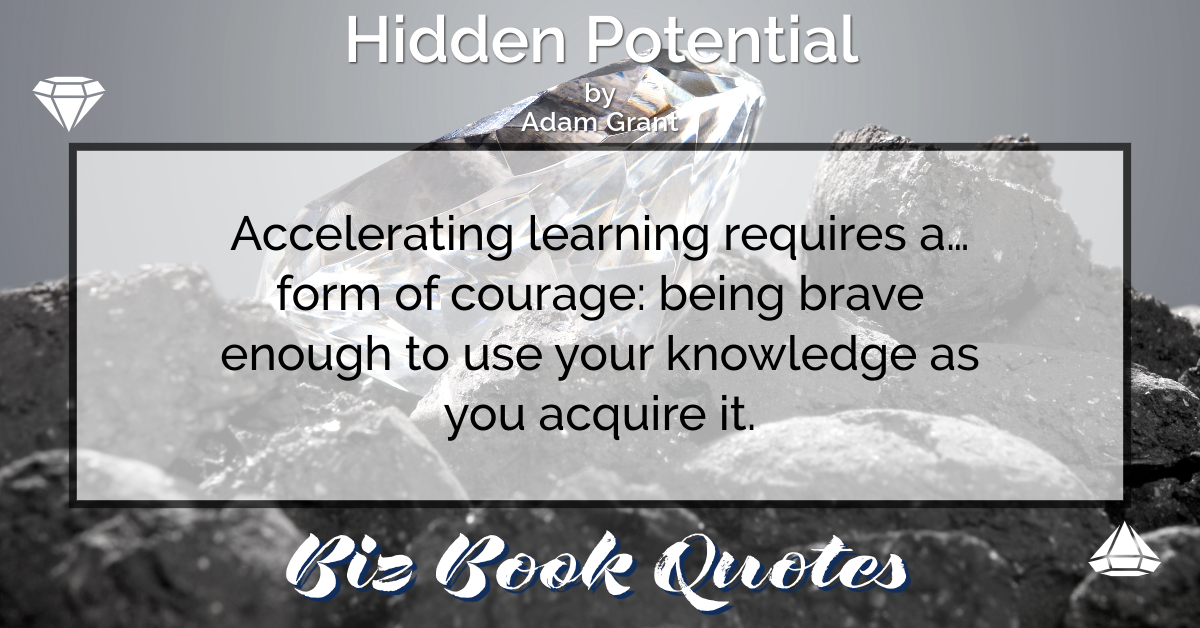 |
When discomfort is a signal of progress, you don’t want to run away from it. You want to keep stumbling toward it to continue growing.
|
034 |
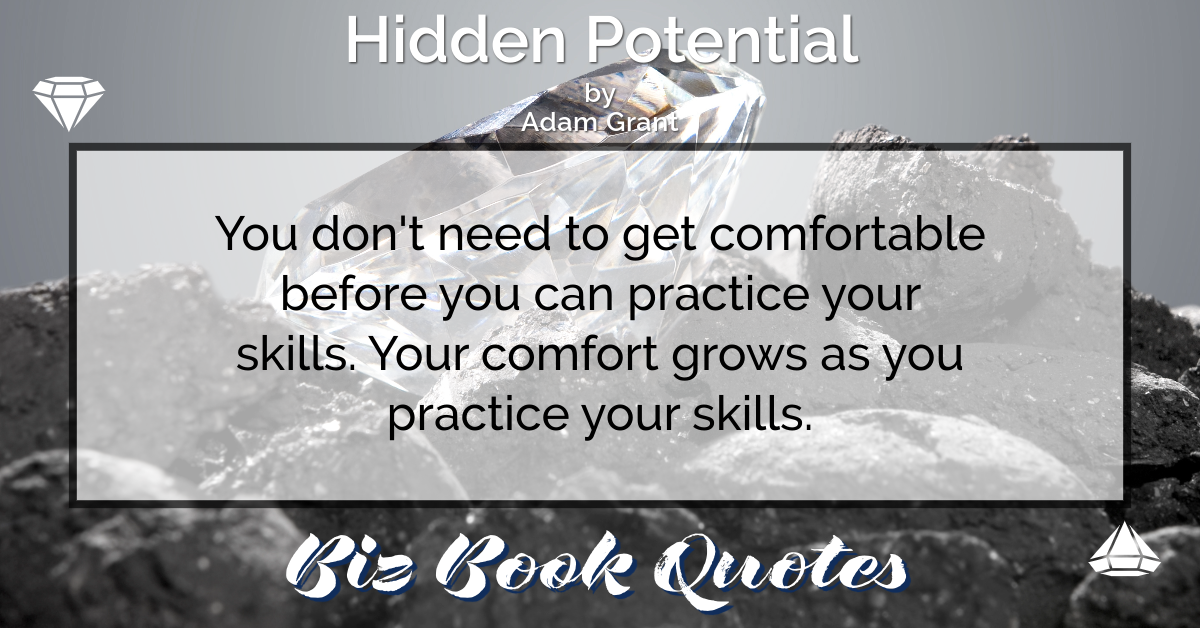 |
You don’t need to get comfortable before you can practice your skills. Your comfort grows as you practice your skills.
|
041 |
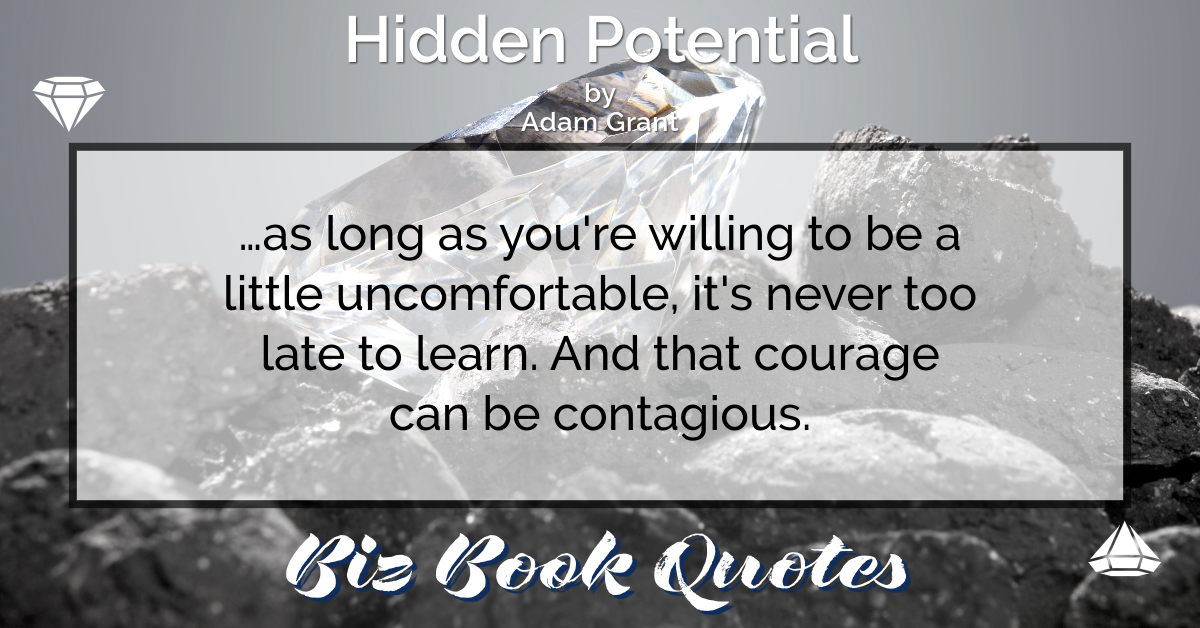 |
…as long as you’re willing to be a little uncomfortable, it’s never too late to learn. And that courage can be contagious.
|
041 |
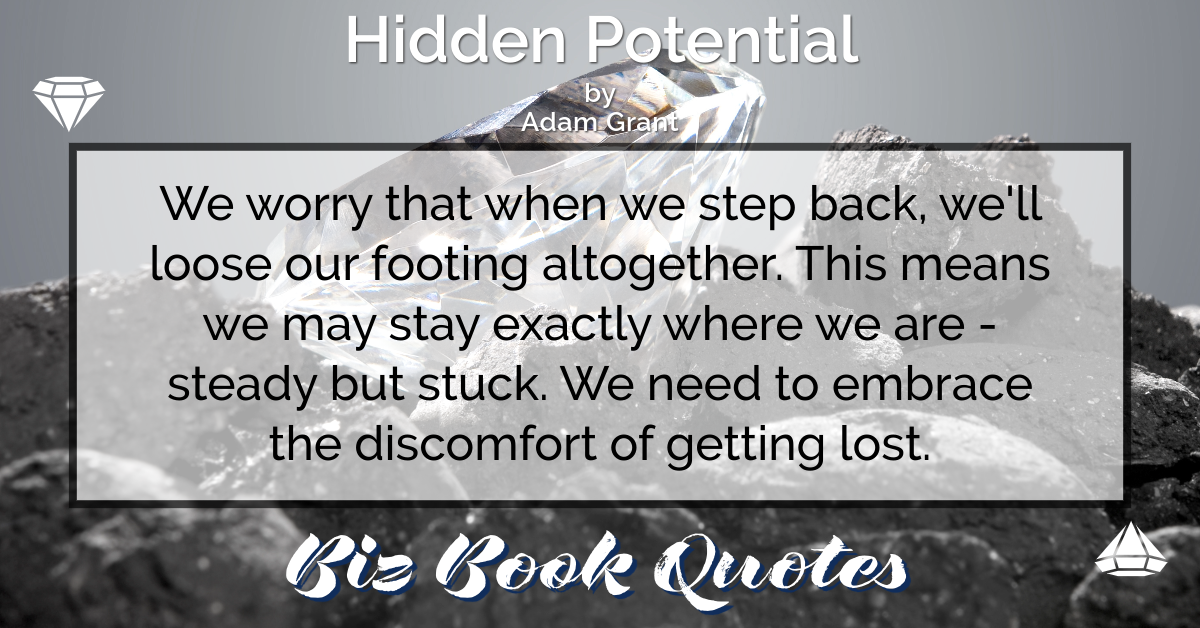 |
We worry that when we step back, we’ll loose our footing altogether. This means we may stay exactly where we are – steady but stuck. We need to embrace the discomfort of getting lost.
|
110 |
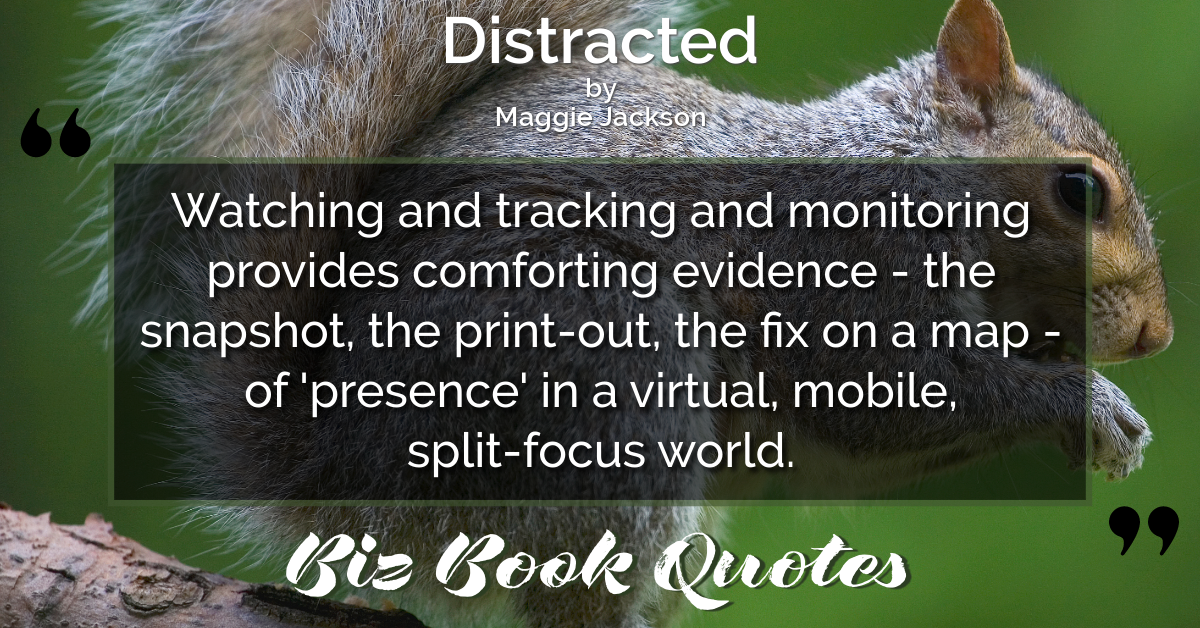 |
Watching and tracking and monitoring provides comforting evidence – the snapshot, the print-out, the fix on a map – of ‘presence’ in a virtual, mobile, split-focus world.
|
129 |
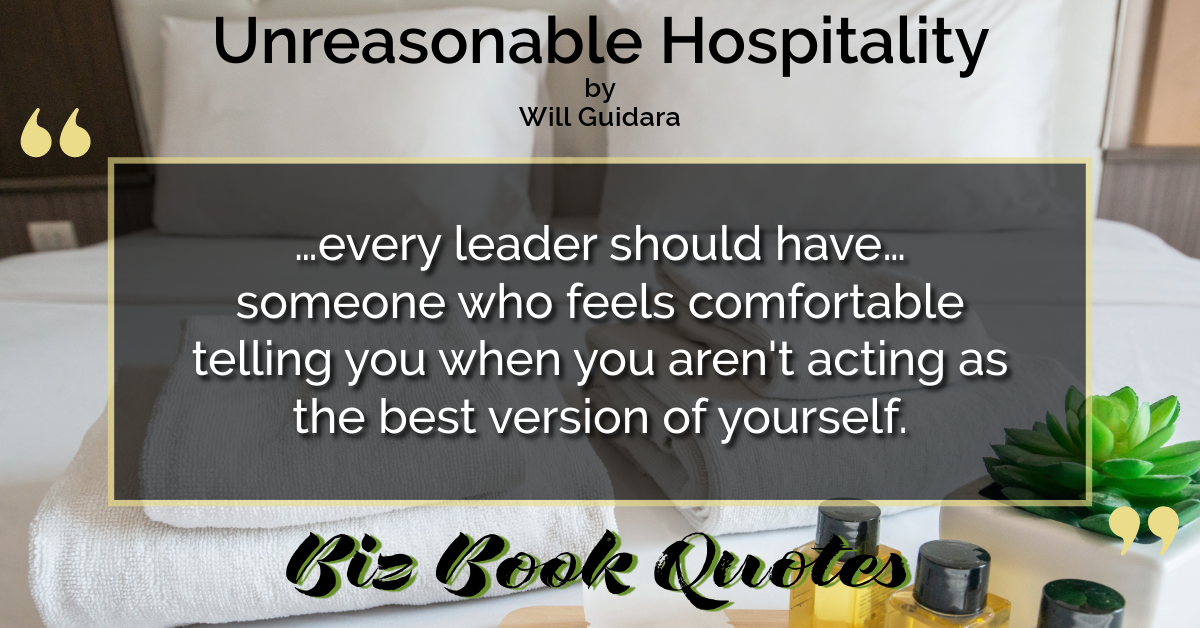 |
…every leader should have… someone who feels comfortable telling you when you aren’t acting as the best version of yourself.
|
059 |
 |
Growth happens outside of your comfort zone.
|
220 |
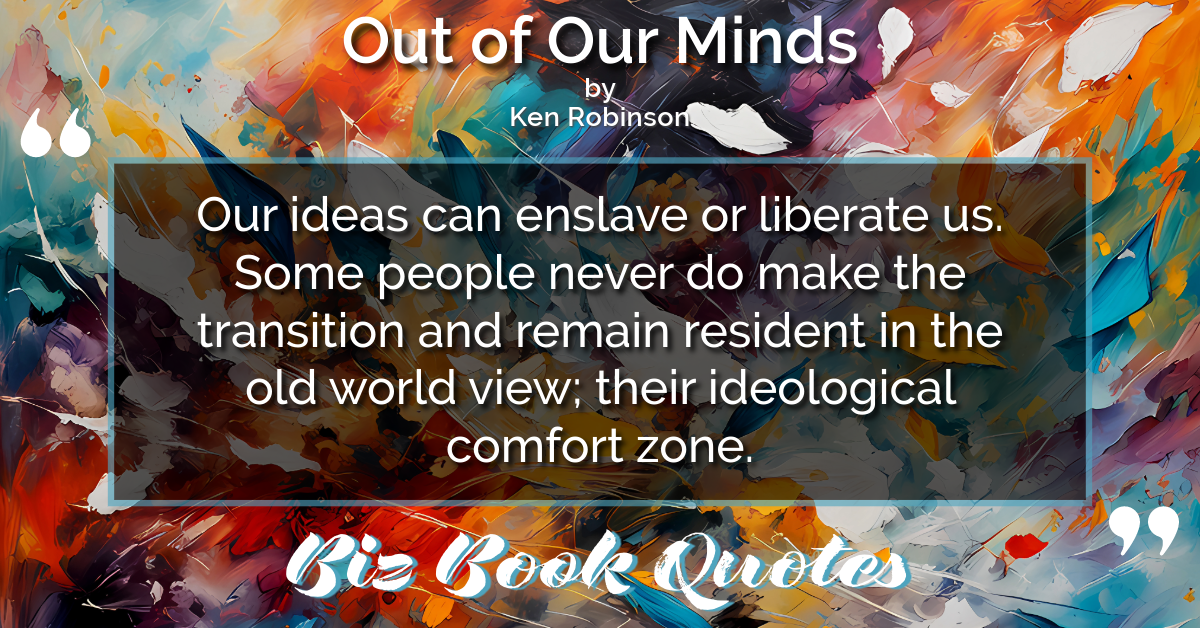 |
Our ideas can enslave or liberate us. Some people never do make the transition and remain resident in the old world view; their ideological comfort zone.
|
106 |
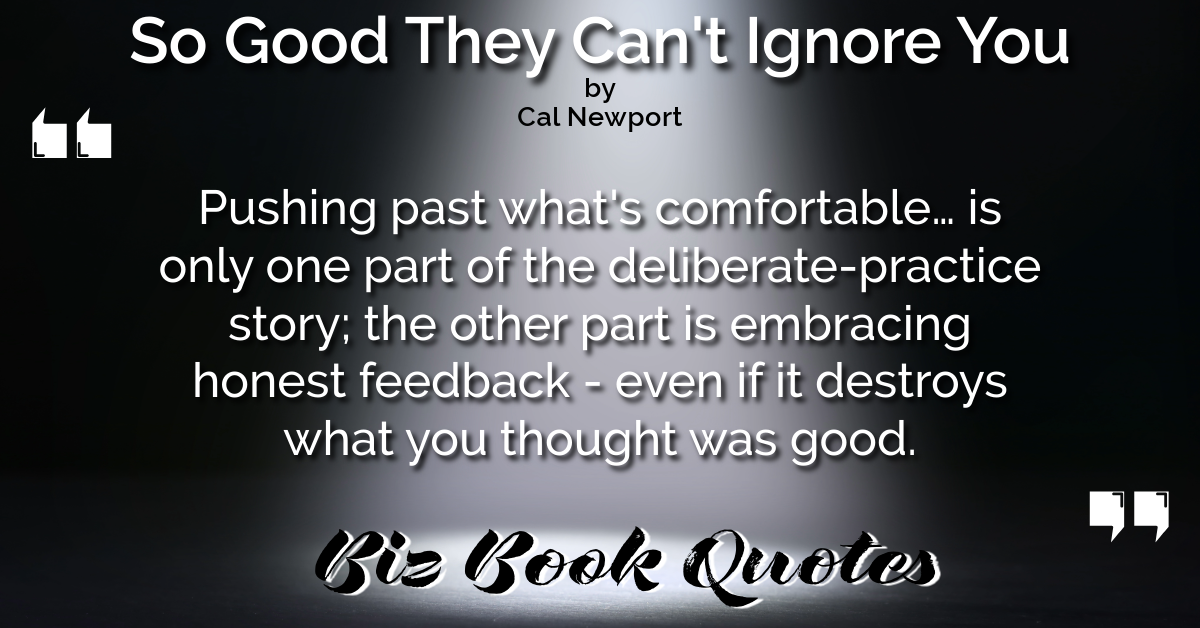 |
Pushing past what’s comfortable… is only one part of the deliberate-practice story; the other part is embracing honest feedback – even if it destroys what you thought was good.
|
097 |